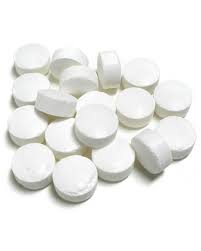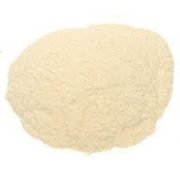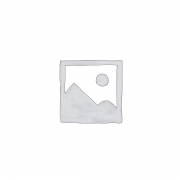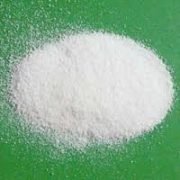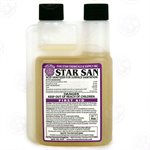Description
Sodium Campden tablets are a sulfur-based product that is used primarily to sterilize wine, cider and in beer making to kill bacteria and to inhibit the growth of most wild yeast: this product is also used to eliminate both free chlorine and the more stable form, chloramine, from water solutions (e.g., drinking water from municipal sources). Campden tablets allow the amateur brewer to easily measure small quantities of sodium metabisulfite, so it can be used to protect against wild yeast and bacteria without affecting flavour.
Typical use is one crushed Campden tablet per US gallon (3.8 L) of must or wort. This dosage contributes 67 ppm sulfur dioxide to the wort but the level of active sulfur dioxide diminishes rapidly as it reacts with chlorine and chloramine, and with aldehydes (particularly in wine). Therefore, the concentration of free sulfur dioxide is greatly diminished by the time the beer or wine is consumed. However, when used only for the purpose of dechlorinating tap water before brewing, one tablet will effectively treat 20 US gallons (75 L) of water.
Campden tablets are also used as an anti-oxidizing agent when transferring wine between containers. The sodium metabisulfite in the Campden tablets will trap oxygen that enters the wine, preventing it from doing any harm.
The name Campden tablet comes from the town of Chipping Campden in Gloucestershire, England, where the original solution was developed in the 1920s by the Fruit and Vegetable Preserving Research Station.
